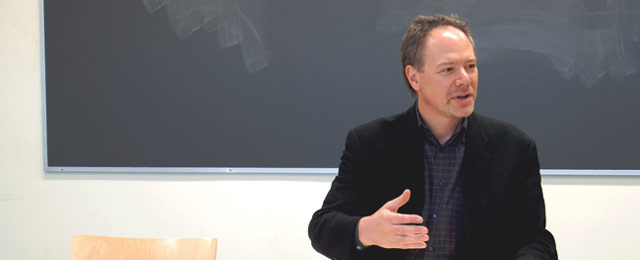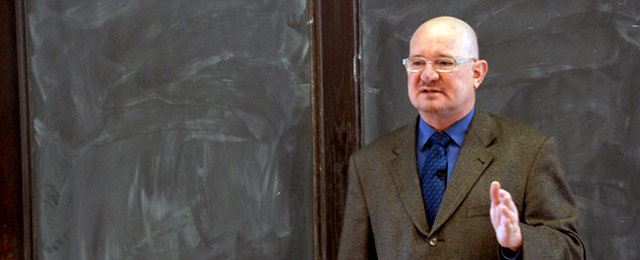Online courses directory (457)
Learn about the key principles and debates in journalism and enact the role of a journalist in the context of an escalating story.
Economics, psychology, and neuroscience are converging today into a unified discipline of Neuroeconomics with the ultimate aim of providing a single, general theory of human decision making. Neuroeconomics provides economists, psychologists and social scientists with a deeper understanding of how they make their own decisions, and how others decide.
This course will introduce you to some of the most important areas of research in contemporary philosophy. Each week a different philosopher will talk you through some of the most important questions and issues in their area of expertise.
This course is intended as an introduction to political philosophy as seen through an examination of some of the major texts and thinkers of the Western political tradition. Three broad themes that are central to understanding political life are focused upon: the polis experience (Plato, Aristotle), the sovereign state (Machiavelli, Hobbes), constitutional government (Locke), and democracy (Rousseau, Tocqueville). The way in which different political philosophies have given expression to various forms of political institutions and our ways of life are examined throughout the course.
This course surveys questions about human behavior and mental life ranging from how you see to why you fall in love. The great controversies: nature and nurture, free will, consciousness, human differences, self and society. Students are exposed to the range of theoretical perspectives including biological, evolutionary, cognitive, and psychoanalytic. One of the best aspects of Psychology is that you are the subject matter. This makes it possible to do many demonstrations in lecture that allow you to experience the topic under study. Lectures work in tandem with the textbook. The course breaks into small recitations sections to allow discussion, oral presentations, and individual contact with instructors.
This course is a survey of the scientific study of human nature, including how the mind works, and how the brain supports the mind. Topics include the mental and neural bases of perception, emotion, learning, memory, cognition, child development, personality, psychopathology, and social interaction. Students will consider how such knowledge relates to debates about nature and nurture, free will, consciousness, human differences, self, and society.
Course Format
 This course has been designed for independent study. It includes all of the materials you will need to understand the concepts covered in this subject. The materials in this course include:
This course has been designed for independent study. It includes all of the materials you will need to understand the concepts covered in this subject. The materials in this course include:
- A full set of Lecture Videos by Prof. John Gabrieli.
- Reading Assignments in several books, including one free online textbook and detailed notes on another book.
- Assorted multiple choice and short answer questions to Check Yourself on the material in each session.
- Supporting Discussion content that elaborates on the lectures and reading.
- A rich collection of online resources for Further Study on each session's topics.
- A full set of Exams with solution keys, and extra practice questions for review.
Other Versions
Other OCW Versions
OCW has published multiple versions of this subject. ![]()



















